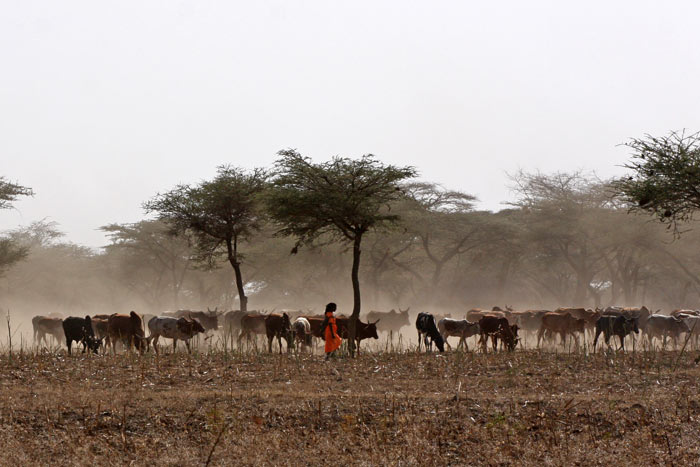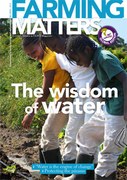Nnimmo Bassey argues that the right to water is today’s most violated of human rights. He makes a plea to reject privatisation of water in any form and to value agroecological knowledge on water management.
In August 2015, I spoke at the Lagos Water Summit. As part of a social movement process for strong, democratically controlled water systems across Africa and around the world, the Summit provided a platform for sharing activists’ struggles against corporate control of water in places ranging from the Philippines, Indonesia to Ghana. I will share snippets of what I said at the summit.
Water is an essential right, without which no other right can be enjoyed. This is because water is the basis of life and of living in dignity. But today this is the most violated of the human rights. Let me explain.
Policy frameworks such as the Sustainable Development Goals (SDGs) emphasise access to water rather than the right to water. But in a situation where water supply has become a business and not a public good, it is clear that the private sector will determine who has access to water and at what cost. Public-private partnerships in water supply have boiled down to access for those that can afford the water rather than water as a right for all.
By 2025 all African countries will be vulnerable with regards to water supply. With climate change, increased flooding, droughts and desertification, the hope of securing ample fresh water supply continues to recede. Lake Chad used to be one of Africa’s largest lakes, but has diminished to less than 10 % of what it was in 1960. Fisher folks and pastoralists who depended on it for their livelihoods have been displaced.
In Europe the average person gets as much as 200-300 litres a day for domestic use, while in countries like Mozambique it is a mere 10 litres. Our reality across Africa is one of a punishing daily search for water of dubious quality, especially by women and children. Our nations groan from the pains of lack of clean water.
What to do? First, agroecological and traditional knowledge on water management must be valued and supported. Second, the water sources our peoples depend on must not be treated as dumpsites for toxic waste. And the privatisation of water in any form must be rejected. In several countries the public sector has successfully provided water through public-public partnerships. Governments should analyse and learn from these to distil best practices.
Water is nature’s gift to the Earth. Attempts to deny anyone the right to water is an inexcusable disconnect from nature. When governments realise that a healthy population living in dignity is the best form of security, no expense will be spared to secure the enjoyment of the right to water by everyone.
Nnimmo Bassey
Nnimmo Bassey is a Nigerian environmental activist, author and poet who chaired Friends of the Earth International from 2008 to 2012 and was director of Environmental Rights Action Nigeria for two decades. He is currently the director of the Health of Mother Earth Foundation.
Email: nnimmo@homef.org


